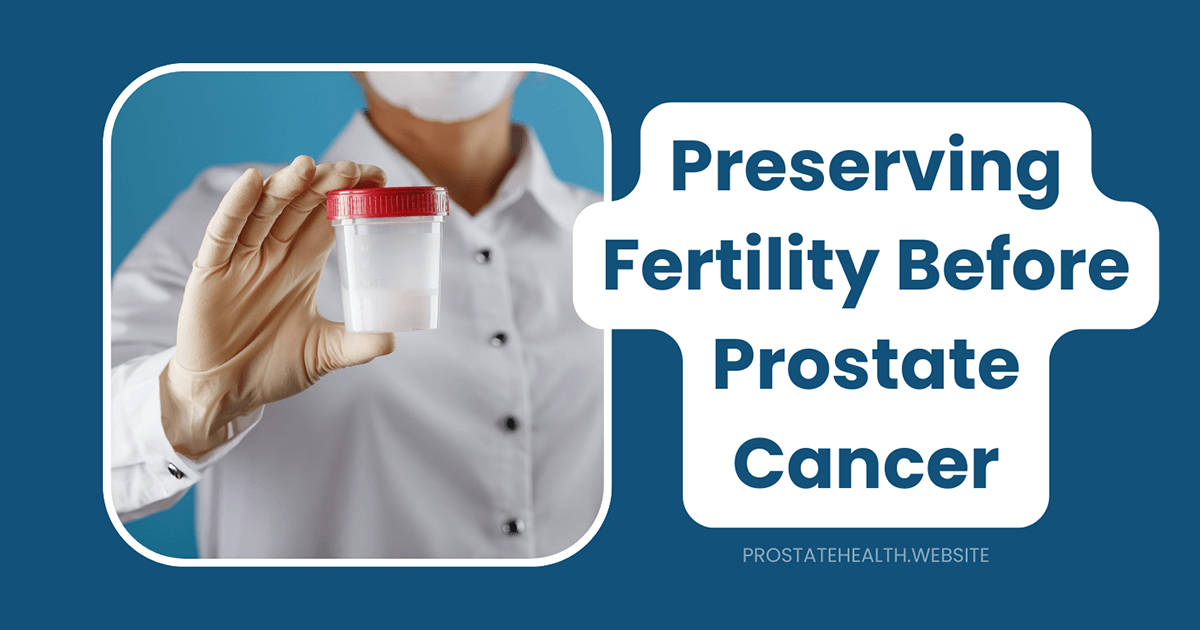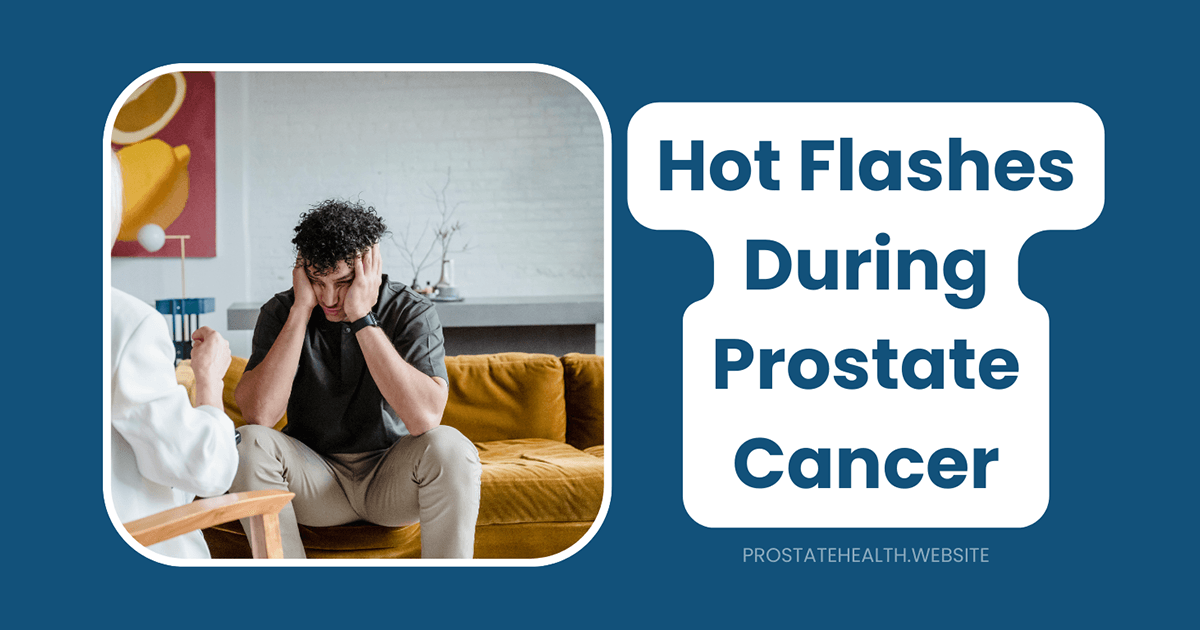Humor as a Coping Mechanism During Prostate Cancer Treatment

When John first joined our prostate cancer support group, he sat quietly in the back row, arms crossed, expression guarded. Three weeks into his radiation treatments, he was struggling with fatigue, anxiety, and the weight of his diagnosis. But something unexpected happened during that meeting. As another member described a particularly awkward hospital gown incident, the room erupted in knowing laughter—and for the first time, I saw John smile.
“I thought I was the only one who had that happen,” he admitted afterward. “I’ve been so serious about everything since my diagnosis. I’d forgotten what it feels like to laugh.”
John’s experience reflects what research has consistently shown: humor can be a powerful tool in the cancer journey. A study published in the Journal of Clinical Oncology found that 61% of cancer patients report using humor “frequently” or “always” when dealing with their diagnosis and treatment. Even more telling, 79% stated that humor decreased their anxiety.
But in a culture where men are often expected to face health challenges with stoic resolve, the healing power of humor can be overlooked or even discouraged. This article explores how laughter and humor can serve as effective coping mechanisms during prostate cancer treatment—not as a replacement for proper medical care, but as a complementary strategy that supports both mental and physical well-being.
The Science Behind Humor and Healing
Before dismissing humor as merely “feeling better,” it’s worth understanding the physiological impact of laughter on the body:
Physical Benefits of Laughter
When you laugh, your body responds in measurable ways:
- Stress hormone reduction: Laughter decreases cortisol levels, the body’s primary stress hormone
- Endorphin release: Your brain releases endorphins, natural feel-good chemicals that promote well-being
- Immune system support: Studies show laughter can increase natural killer cell activity, important for fighting disease
- Muscle relaxation: After a good laugh, muscle tension is reduced for up to 45 minutes
- Improved circulation: Laughter enhances blood flow, similar to light exercise
“It’s like a full-body workout,” explains Dr. Robert Chen, oncologist and prostate cancer specialist. “When patients incorporate humor and laughter into their coping strategies, we often see improvements in pain tolerance, sleep quality, and overall resilience during treatment.”
Psychological Benefits
The mental health benefits of humor during cancer treatment are equally significant:
- Anxiety reduction: 79% of cancer patients report decreased anxiety when using humor
- Emotional release: Humor provides a socially acceptable outlet for expressing difficult emotions
- Cognitive reframing: Jokes often involve seeing situations from new perspectives, helping patients reframe their experience
- Sense of control: Creating or sharing humor gives patients agency in an otherwise uncontrollable situation
- Connection: Shared laughter builds bonds between patients, caregivers, and healthcare providers
As one support group member put it: “Cancer tries to isolate you in fear. Laughter pulls you back into the human community.”
Types of Humor That Help
Not all humor serves the same purpose during the cancer journey. Research and experience suggest several types can be particularly helpful:
Situational Humor
Finding the absurd or ironic elements in cancer-related situations helps many men cope with the indignities of treatment:
“When the nurse told me to ‘just relax’ while she was preparing me for a rectal exam, I couldn’t help but laugh,” shares Thomas, 65. “I told her that ‘relax’ wasn’t exactly the word I’d choose for the moment. She laughed too, and somehow that shared moment of acknowledging the awkwardness made the whole thing more bearable.”
Self-Deprecating Humor
The ability to laugh at oneself can be empowering during a time when you might otherwise feel like a victim:
“I started calling myself ‘The Radioactive Bachelor’ during my radiation treatments,” says Michael, 58. “It gave me a superhero alter-ego instead of just being ‘a cancer patient.’ My adult kids even got me a cape as a gift for my last treatment day.”
Gallows Humor
Also called dark humor, this approach acknowledges difficult realities while defusing their emotional power:
“After my diagnosis, I told my wife I finally had an excuse for forgetting our anniversary—’chemo brain,'” admits Robert, 62. “She reminded me I hadn’t even started chemo yet. I told her I was practicing my excuses early.”
Research from prostate cancer support groups shows that this type of humor often serves to “disarm stoicism” and create authentic connections between men who might otherwise struggle to express vulnerability.
Absurdist Humor
Sometimes, the sheer absurdity of cancer and its treatments becomes a source of humor:
“My radiation oncologist had a ‘Finding Nemo’ tie on during our first meeting,” recalls James, 70. “All I could think was ‘Just keep swimming, just keep swimming’ during that serious conversation about side effects. That became my mantra throughout treatment.”
When and How to Use Humor
While humor can be healing, timing and context matter. Here are guidelines for using humor effectively during your cancer journey:
Reading the Room
- Consider your audience: What makes your support group laugh might not be appropriate in all settings
- Watch for cues: If others seem uncomfortable, pivot to a different approach
- Respect individual differences: Not everyone processes difficult experiences through humor
“I learned quickly that my oncologist appreciated my jokes, but my radiation technicians preferred to keep things professional,” shares Thomas. “Adapting to each person’s style made my treatment days go more smoothly.”
Self-Care Through Humor
Using humor as a personal coping strategy can be valuable even when not shared with others:
- Humor journals: Recording funny observations or thoughts during treatment
- Comedy consumption: Watching favorite comedians or sitcoms during recovery days
- Absurd visualization: Imagining cancer cells as cartoon villains being zapped by treatment
“During radiation, I imagined tiny Star Wars battles happening inside me,” admits Michael. “The radiation beam was the Rebel Alliance, and my cancer cells were the Empire. It gave me something to visualize besides just lying there worrying.”
Humor with Healthcare Providers
Research shows that 86% of cancer patients believe it’s important for healthcare providers to use appropriate humor during visits. When done well, humor can:
- Reduce power imbalances in the doctor-patient relationship
- Make difficult information easier to process and remember
- Create a more comfortable environment for asking sensitive questions
“My urologist has a great sense of humor,” says Robert. “When he needed to do a digital rectal exam, he said, ‘This is the part where we both feel uncomfortable for different reasons.’ That moment of honesty and humor made me feel like we were just two humans dealing with an awkward situation together.”
Humor in Support Groups: A Special Dynamic
Prostate cancer support groups often develop their own unique humor culture. A qualitative study of 16 support groups found that humor served several important functions:
Creating Inclusivity
Shared laughter helps new members feel welcome and understood:
“When I first attended the group, I was terrified,” recalls James. “But when the guys started joking about the infamous hospital gowns that never close properly in the back, I realized I wasn’t alone in my experiences. That laughter was like an invitation to belong.”
Addressing Taboo Topics
Humor provides a pathway to discuss sensitive subjects like incontinence, erectile dysfunction, and body image:
“We have a running joke about the ‘Depends discount club’ in our group,” shares Thomas. “It sounds crude from the outside, but that humor lets us talk openly about incontinence issues that many of us struggle with. Once we can laugh together about it, we can also share practical advice without shame.”
Redefining Masculinity
Perhaps most importantly, humor helps men navigate changes to their sense of masculinity and sexuality:
“There’s this moment in many men’s prostate cancer journey where they have to reconcile who they were before diagnosis with who they are now,” explains Dr. James Wilson, psychologist specializing in men’s health. “Humor provides a bridge between these identities. It allows men to acknowledge changes while maintaining their core sense of self.”
Boundaries and Sensitivity: When Humor Misses the Mark
While humor can be healing, it’s important to acknowledge its limitations and potential pitfalls:
When Humor Might Not Help
- During initial diagnosis: Some men need time to process before finding humor
- When masking deeper issues: Humor shouldn’t replace addressing genuine emotional distress
- With people who don’t share your coping style: Respect others’ ways of dealing with cancer
“I’m usually the jokester in any situation,” admits Robert. “But when I first got my diagnosis, I couldn’t find anything funny about it. My wife tried to lighten the mood, but I just wasn’t ready. It took about two weeks before my sense of humor returned.”
Navigating Different Comfort Levels
Even in support groups, men have different boundaries around humor:
- Start with self-directed humor: Jokes about your own experience are safer than those about others
- Check in: “Is it okay if I share something humorous about this?”
- Apologize if needed: If humor falls flat or offends, a simple acknowledgment goes a long way
“Our group facilitator is great at reading the room,” shares Michael. “When a new member seems uncomfortable with our usual banter, he gently steers the conversation to make sure everyone feels respected.”
Practical Ways to Incorporate Humor
If you’re interested in using humor as a coping strategy during your prostate cancer journey, here are practical approaches to get started:
Curate Your Comedy
- Create a “feel good” playlist: Collect favorite funny movies, TV shows, or stand-up specials
- Follow humor accounts: Social media accounts focused on cancer humor can provide daily smiles
- Read humorous memoirs: Books like “Man to Man: Surviving Prostate Cancer” by Michael Korda blend information with humor
“I made a rule that I’d watch at least 30 minutes of comedy on treatment days,” says James. “It became a ritual that helped me mentally separate medical time from the rest of my life.”
Create a Humor Support Network
- Identify your “safe” humor people: Friends or family who understand your humor style
- Join support groups: Look for groups where laughter is part of the culture
- Connect online: Communities like YANA (You Are Not Alone) often include humor as part of support
“My brother became my humor lifeline,” shares Thomas. “He’d text me ridiculous jokes daily during treatment. Some were terrible, but knowing he was trying to make me smile meant everything.”
Generate Your Own Humor
- Keep a humor journal: Record funny observations or thoughts during your cancer journey
- Create cancer-related jokes: Some men find writing their own humor therapeutic
- Share your perspective: Consider blogging or social media to connect with others through humor
“I started writing a joke a day during Prostate Cancer Awareness Month,” explains Robert. “It began as personal therapy, but sharing them online connected me with other survivors who needed a laugh too.”
Partners and Caregivers: Supporting Through Humor
Partners and caregivers often walk a fine line—wanting to support through humor without seeming insensitive. Here are guidelines for loved ones:
For Partners and Family Members
- Follow the patient’s lead: Let them set the tone for when humor is welcome
- Laugh with, not at: Ensure humor feels supportive rather than dismissive
- Offer humor as an option: “Would a funny movie help tonight, or would you prefer something else?”
- Be patient: Understand that receptiveness to humor may fluctuate throughout treatment
“My wife knew exactly when I needed distraction through laughter and when I just needed quiet support,” shares Michael. “That intuition made all the difference in my emotional well-being during treatment.”
Creating Humor Together
Many couples find that creating humor together strengthens their bond during cancer treatment:
- Inside jokes: Develop private humor about the cancer experience
- Naming devices or procedures: Some couples give humorous names to medical equipment
- Planning humor breaks: Scheduling regular activities that bring laughter
“We named my catheter ‘Fred’ after treatment,” admits James with a chuckle. “Somehow, giving it a ridiculous name made a difficult situation more manageable for both of us. ‘How’s Fred doing today?’ became our way of checking in without getting too clinical or serious.”
The Healing Journey: Humor as Part of Integrated Coping
The most effective approach to coping with prostate cancer integrates humor with other strategies:
A Balanced Approach
- Medical compliance: Humor complements but never replaces proper treatment
- Emotional processing: Allow space for both laughter and tears
- Physical care: Combine humor with exercise, nutrition, and rest
- Social connection: Use humor to strengthen rather than replace genuine support
“I think of humor as one tool in my cancer coping toolbox,” explains Robert. “Some days I need my support group, some days I need a good cry, some days I need a long walk—and some days I need to laugh until my sides hurt. Having all these options available makes me more resilient.”
Finding Your Humor Style
There’s no single “right way” to use humor during cancer treatment. The key is finding an approach that feels authentic to you:
- Observe what naturally makes you laugh: Even during difficult times, notice what brings a smile
- Experiment with different types of humor: Wordplay, observational humor, absurdist comedy
- Respect your own boundaries: Some aspects of your experience may never feel funny—and that’s okay
“I was never a joke-teller before cancer,” shares Thomas. “My humor was more observational—noticing the ironies and absurdities of everyday life. That same approach helped me cope with cancer. I didn’t suddenly become a comedian, but I did learn to see the absurd moments in treatment and find relief in acknowledging them.”
Resources for Humor and Healing
These resources can help you explore humor as a coping strategy:
Books
- “Cancer Made Me a Shallower Person” by Miriam Engelberg
- “Cancer Vixen” by Marisa Acocella Marchetto
- “The Bright Hour: A Memoir of Living and Dying” by Nina Riggs
Online Communities
- Cancer Survivors Network – Includes forums where humor is often shared
- Man Up to Cancer – A community that embraces authentic ways of coping, including humor
- Mayo Clinic Connect – Features discussions about humor during cancer treatment
Videos and Podcasts
- “The C Word” on Netflix
- “Laughing at Cancer” TED Talk by Ros Ben-Moshe
- “The Hilarious World of Depression” podcast
A Personal Note: Finding Light in Dark Places
When I was diagnosed with prostate cancer at 47, humor was the furthest thing from my mind. The first few weeks were a blur of appointments, information overload, and existential dread. But I’ll never forget the moment humor found its way back into my life.
I was sitting in the waiting room before a CT scan, wearing one of those infamous hospital gowns that never quite close in the back, when an elderly gentleman in an identical gown caught my eye. “Nice outfit,” he deadpanned. “Are you wearing this designer to the gala next week too?”
That unexpected moment of connection through humor shifted something in me. It didn’t change my diagnosis or treatment plan, but it changed how I experienced them. It reminded me that even in this sterile, frightening medical world, I was still human—still capable of laughter, still able to connect with others through shared absurdity.
In the years since, both as a patient and as an advocate working with hundreds of men facing prostate cancer, I’ve seen how humor creates space for authenticity, vulnerability, and healing. It doesn’t deny the seriousness of cancer; rather, it affirms the fullness of life that exists alongside it.
As one wise member of our support group often says: “Cancer may have taken my prostate, but I refused to let it take my laughter. That’s where I draw the line.”
Has humor helped you cope with prostate cancer or another health challenge? What approaches have worked for you? Share your experiences in the comments below to help other men navigating this journey.






